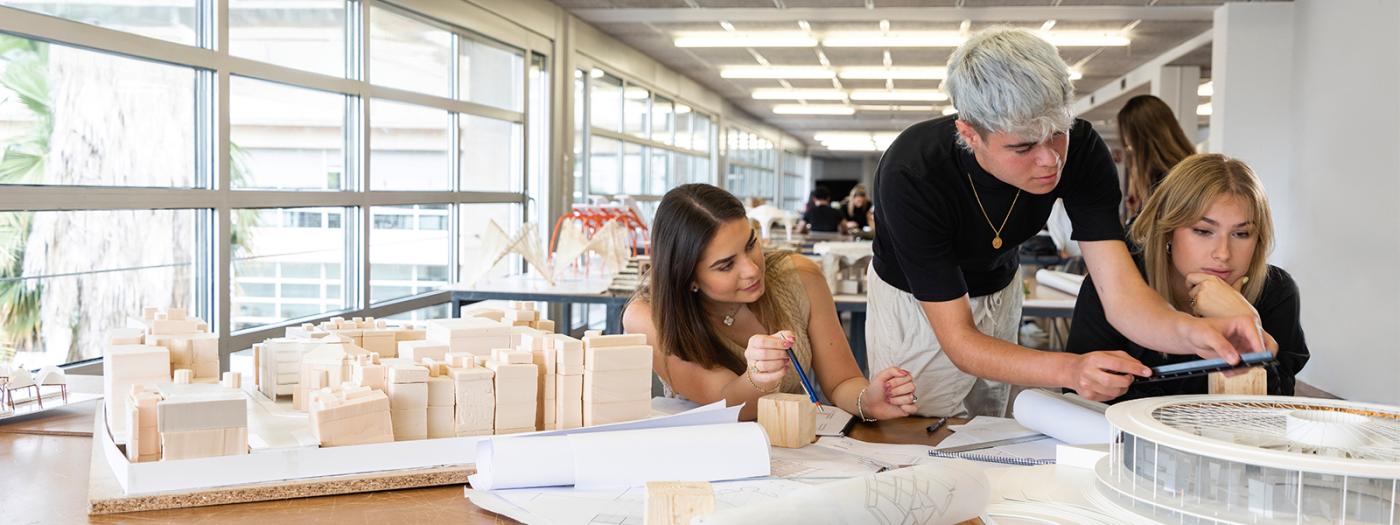· Advance in the research exercise of architectural projects, showing autonomy in the process, the ability to decide and synthesize, in order to contribute new knowledge about the object of study from an original, personal, and contrasted perspective.
· Demonstrate initiative and skill in constructing abstract models, using artistic and literary materials: texts, diagrams, assemblages, and models. Use rigorously the processes and tools for academic text writing.
· Learn to be reflective in the creative process of the project. Develop a personal point of view through the establishment of analysis categories that provide real and deep knowledge, not mediated. Acquire an awareness of the demanding nature of one's own work and the responsibility of service as a professional.
· Develop creative skills for working and presenting, individually and in groups, using procedures associated with other arts, audiovisual media, or games, to encourage participation and debate within the class.
The content of each course revolves around the research of a case study. These are modern architectural works for which basic information is available. The focus is on lesser-known examples from diverse geographies and authors to enrich students' knowledge of architecture and promote the acquisition of personal and justified perspectives. In classes, basic knowledge is provided, and, even more importantly, methodological tools are provided to acquire the habit of reflection and critical thinking.
The course is divided into two blocks corresponding to the different tasks that students must complete, both in groups and individually.
Analytical Phase
Case studies are analyzed to understand their principles of form, function, and construction. The analysis starts with redrawing and studying the project in its context. It includes the search for corroborated information and the proposal of hypotheses about the unknown.
The presentation of the research is intended to be creative, avoiding conventional graphic exposition, with the aim of conveying the conclusions to the rest of the group.
Synthetic Phase
A specific aspect of the work, discovered in the previous research, is developed. The discourse is structured in a short academic article, which is worked on graphically and in writing, providing new knowledge about the case study from a personal and original perspective.
In parallel, students are encouraged to create a critical journal in which they can complement the ideas and examples presented in class. The intention is to create a graphic, creative, and personal record of the reflections, thoughts, and references acquired during the course.
The program also includes visits to exhibitions of interest and attendance at lectures.
Problem-solving and exercise classes
Laboratory practices
Seminars
Self-paced learning
Project-based learning
Flipped classroom
Gamification
Peer instruction
Real-world events
Challenge-based learning
Case method
Lectures
Exams
Assignments
Internal/External Reports
Exercises, problems, practices
Projects
Group/Individual Presentations
Self-evaluation
Class participation/attendance
Critiques by a panel/jury
